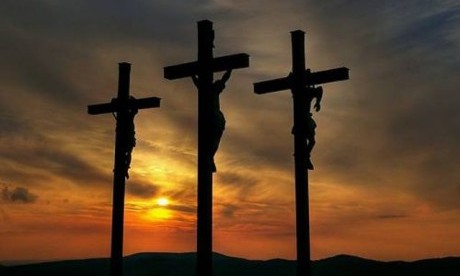Catholics from China admit feeling embarrassed when they see a crucifix. Beyond the image of a tortured man suffering execution, the crucifixion depicts total humiliation, or “loss of face” as the Chinese say. To them, this seems harsher than the physical pain.
The trouble with the crucifix is we no longer see it, but rather filter the image through our eyes of faith. Some people wear it as an accessory like gold earrings or a necklace; others use it as a talisman to ward off evil, if not vampires. A few brave souls even have it tattooed on various parts of their anatomy. The truth is, if we actually took the time to see the crucifix, we, like the Chinese, would be shocked, if not thoroughly scandalized.
While the Romans did not invent this particularly brutal form of capital punishment, they certainly perfected it. They were not interested in simply killing criminals; they intended to demean and dehumanize them. The slow, tortuous death was a bonus. The public spectacle served not only as a punishment for miscreants but also as a warning to anyone who harbored similar rebellious thoughts.
When I ask Bible study groups why Jesus was crucified, I get the formulaic “He died for our sins” or sometimes “He died to show God’s love for us,” which are true enough, but not complete. Certainly the powers-that-be who conspired to silence the pesky rabbi from Nazareth didn’t have the salvation of the human race in mind. Rephrasing the question: “What did Jesus do to deserve crucifixion?” proves more thought-provoking. Clearly Jesus and his message posed a threat to the status quo, both religious and political. His cleansing of the Temple was the last straw. But the physical expulsion of merchants and moneychangers from the Court of the Gentiles was simply the final, dramatic manifestation of Jesus’ scandalous message throughout his ministry: God loves everybody, unconditionally. Continue reading
Sources
- Joseph R Veneroso in National Catholic Reporter
- Image: Vimeo
Maryknoll Fr. Joseph R. Veneroso is a former editor and publisher of Maryknoll magazine and Revista Maryknoll.
